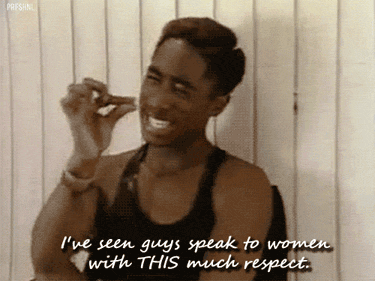Why Privacy is a Feminist Issue
Every woman is one bad ex away from protecting their data.
Hey all - hope you’re having a great week! This week I wanted to dive into a topic that I think about often, but never see brought up in the tech spaces where privacy and security are discussed. I hope it gives you something to think about.
I’ve worked in the Privacy field for several years now. Yup, I’m knee deep in the whole techie thing. I’ve been to the privacy and security summits and discussed everything from anonymization to proper collection of user consent. But because the tech world tends to lean so often on the businesses’ point of views, a lot of the thought is invested in protecting large companies from government regulation rather than an individual user’s perspective on traversing the net.
Privacy is ensuring that all our data is protected — yes, from these companies using it improperly (looking at you, Cambridge Analytica) — but also from other malicious users online. Have you ever Googled yourself? You may find yourself stumbling upon your own address on a site like WhitePages or PeopleFinders. These sites also collect your full name, people closely related to you, and prior places of residence. Not only that, but it only takes 15 pieces of data about you (age, browser used, country…) for someone to identify you from a sea of data. That’s not to mention all the detailed information about yourself you posted on your Facebook back in 2009 that could still be public. When we are this visible on the Internet, it’s a simple exercise in Google search terms for anyone to find you.
There’s an inherent danger to saying “I don’t have anything to hide.”
And like a lot of things in tech, a lot of these arguments come from a place of privilege. Often times, men aren’t aware of women’s issues like safety walking alone at night or basic features like the necessity of menstrual tracking. I’m not saying that cis men don’t experience domestic violence or fear from a vengeful ex, but 1 in 4 women have experienced some form of intimate partner violence compared to 1 in 10 men. (That’s not even including the percentage of violence against LGBT people…) Unfortunately, when most women think about the world it comes with the grim reality that unsafe places and unsafe people exist.
I’ve actually been there
When I was in college I dated this guy who ended up having a breakdown when I broke up with him. Luckily I went home for the semester break soon after, finding some safety in being miles away. He sent me long, violent screeds on Facebook messenger, even after I blocked his account. He was a software engineering major, so I was acutely aware that he was very in tune with the many ways he could get information about me online. I made all of my online accounts private and deleted what extra public information I could.
I had lived online for pretty much all of my formative years, and now I found myself doing something I never thought I’d have to do— disengage with the public Internet and hide behind as many technical walls as I could. I heard from mutual friends that he ended up getting drunk and shouting in the street about me and getting arrested. He would ply mutual friends with questions about me and ask if there was still a chance…even years after we broke up. I didn’t know him to have any weapons, but the sheer emotional force being thrown my way by someone who was much larger than I was was frightening. It’s hard to explain the deep panic and lingering fear of these threats to someone who hasn’t experienced it.
The whole experience colored my relationship with the Internet and made me grateful that my experience was “not that bad” in the grand scheme of things. Others have vengeful exes that are much more dangerous, violent, and even deadly.
But this isn’t new— why digital Privacy?
As the subtitle says, I truly believe that most women are one bad ex away from caring deeply about data privacy. Even the protections that are in place to protect those in dangerous relationships like a restraining order rely entirely on the police to enforce it:
First a victim has to go to court to get a restraining order, something not everyone has the funds, time, or is organized enough to do.
A victim of this sort of harassment has to submit every message from the harasser to the police and hope that a judge sees the message as a breach of the restraining order and remove the harasser from the Internet entirely. However, because jobs, school, and communication are all online this is a high bar to take the Internet away from someone.
If not, the victim has to wait until the harasser takes the violence off the screen and into the real world before anyone will even try to help. And by then, it’s often extremely dangerous to the victim.
Our systems of justice were formed years before we started living online. We need more than this. We need to educate people before the awful thing happens on how to remove your address from public lists (a frustrating process that can even require sending faxes), set social media accounts to private, set up two factor authentication, use a password locker, and other really basic privacy protections.
It’s high time we start thinking about Privacy as a justice and safety issue and not just a corporate issue. We are online too, and we deserve to feel safe enough to engage in the public Internet.


